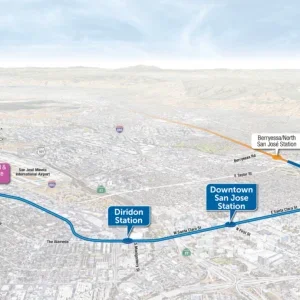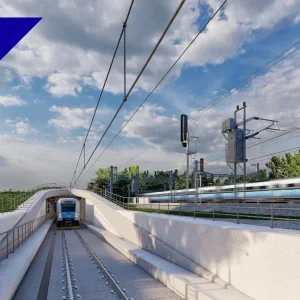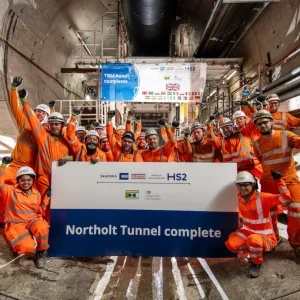Contractors on the Chengdu Metro in China celebrated a citywide excavation record of 457.5m in March. The 6.26m diameter Robbins EPB has excavated at rates of up to 24m per day – faster than any of the 11 other TBMs working on the project.
The machine began excavation of Line 2, Lot 18 of the Chengdu Metro in January 2010, as part of a project for the China Railway Construction Corp (CRCC).
By May, the machine had excavated approximately 1,000 m of the 2.7km tunnel, to be bored in two sections. Cutter wear was minimal, with no cutters changed since the start of boring.
“These achievements are due to the strong support of field service during assembly, commissioning, maintenance, and excavation,” Li Quanshe of CRCC wrote in a letter to Robbins.
The machine was designed to excavate geology found nowhere else in China, consisting of highly permeable pebbles, sand, and clay. A mixed ground cutterhead, mounted with 17inch diameter disc cutters and carbide bits, was manufactured specifically to effectively excavate the geology. A foam injection system stabilizes running ground, with each cubic metre of foam mixture able to stabilise about 40 rings of ground. Subsidence is being intensively monitored and crews are trained to utilise probe drilling and ground consolidation if settlement is detected.
China’s Chengdu Metro will open in three stages, with Line 1 operational by 2010. The 26.7km Line 1 will provide service between Honghuayan and Shiji Square stations at speeds of 80 km/h. The 50.6km long Line 2, for Chengdu Metro, (with 17.6km of underground tunnels) will include 26 stations between Longquandong and Shiniu areas. Seven lines totaling 274km are planned to be operational by 2035, and will service 13.1M daily passengers.







